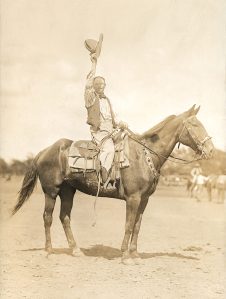General Braxton Bragg, C.S.A.
Samuel J. Martin; McFarland & Co., 2011, $55
Anyone interested in the Confederate high command in the Western Theater will have to read this 500-plus page biography of Braxton Bragg. Few will agree with all of Samuel Martin’s arguments, some will question statements that differ from long-accepted gospel and many will conclude the author is unduly kind to his subject, although he has scant praise for Bragg’s performance during the final year of the Civil War.
Thirty percent of the text traces Bragg’s middle-class childhood, his days at West Point, service in the U.S. Army, his subsequent success as a sugar planter and his early service to the Confederacy along the Gulf Coast and at Shiloh. Bragg’s tenure as commander of the principal department in the Western Theater consumes half the text. The rest covers Bragg’s career after he was relieved of command of the Army of Tennessee in December 1863 until his death in 1876. Probably the Confederacy’s best organizer and administrator, Bragg was a professional soldier who gave everything for the Cause. But he is mostly remembered for being argumentative, a harsh disciplinarian and a poor tactician. Since Jefferson Davis’ imprisonment doubtless allowed him to escape similar opprobrium, Bragg became—and remains— the most detested of the Confederacy’s principal players.
Of Bragg’s many enemies among the Confederate high command, William J. Hardee did him the most harm. Yet historians have never proposed a reason for Hardee’s hostility. Martin presents two possible explanations for Hardee’s unprofessional behavior: First, Bragg’s involvement in an 1846 court-martial that cast doubts on Hardee’s veracity, and second, Bragg’s resuming command of the Army of the Mississippi after having placed Hardee in command of it. Possibly the most surprising of Martin’s assertions is that Bragg loved his men too much to see them fight, that he had an “abhorrence of watching men bleed and die in battle.” It’s difficult to reconcile this image with the one of a commander who was quick to execute his own men.
It is to be hoped that a revised edition of this book will correct its less-than-attentive editing. Grammatical errors abound; some portions of the book use military dates, others don’t. Factual errors mar the volume as well. Some of these—Erwin instead of Irvin; Hardee as commandant of West Point when the war began; divisions instead of brigades—have little to do with Bragg. Geographical confusions are more pertinent. Bragg joins P.G.T. Beauregard at Jackson, Tenn., not Jackson, Miss., making Corinth, Miss., to their southeast rather than north. The town of Humboldt is in Tennessee, not Mississippi. And John C. Breckinridge did not make “a needless and lengthy assault on the Union left” on December 31, 1862, as is made clear elsewhere in the text.
Despite its shortcomings, General Braxton Bragg, C.S.A. is the most detailed and objective biography available of this controversial individual.
Originally published in the January 2012 issue of America’s Civil War. To subscribe, click here.




